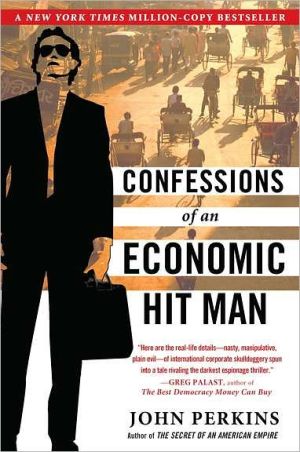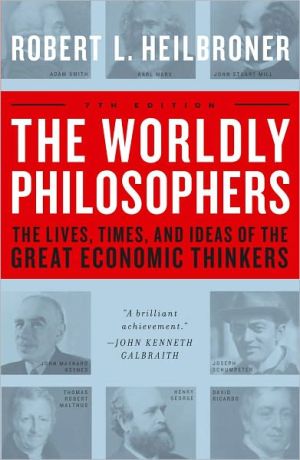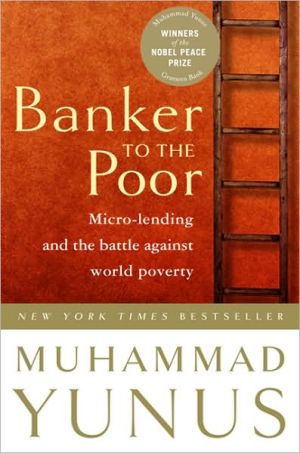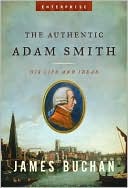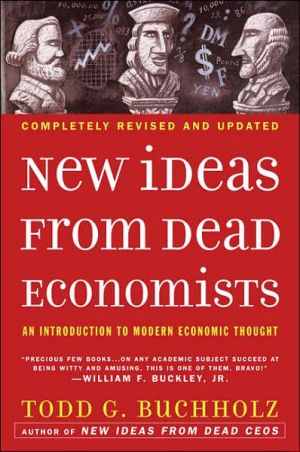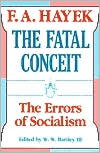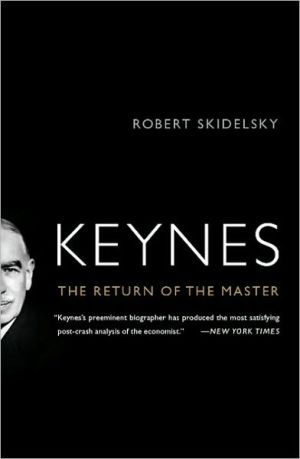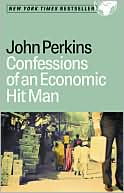Memoirs of an Unregulated Economist
In this witty and modest intellectual autobiography, George J. Stigler gives us a fascinating glimpse into the little-known world of economics and the people who study it. One of the most distinguished economists of the twentieth century, Stigler was awarded the Nobel Prize in 1982 for his work on public regulation. He also helped found the Chicago School of economics, and many of his fellow Chicago luminaries appear in these pages, including Fredrich Hayek, Milton Friedman, Ronald Coase, and...
Search in google:
In this witty and modest intellectual autobiography, George J. Stigler gives us a fascinating glimpse into the little-known world of economics and the people who study it. One of the most distinguished economists of the twentieth century, Stigler was awarded the Nobel Prize in 1982 for his work on public regulation. He also helped found the Chicago School of economics, and many of his fellow Chicago luminaries appear in these pages, including Fredrich Hayek, Milton Friedman, Ronald Coase, and Gary Becker. Stigler's appreciation for such colleagues and his sense of excitement about economic ideas past and present make his Memoirs both highly entertaining and highly educational. Publishers Weekly Stigler, one of the leading figures in the conservative ``Chicago School'' of economics, won the Nobel Prize in Economic Science in 1982 for his work on the economics of information and on the economics of public regulation. In this engaging memoir, he recounts his intellectual development. As a graduate student at the University of Chicago during the 1930s, he was deeply influenced by economists Frank Night and Jacob Viner. These two mentors nurtured his belief in the efficacy of free markets and the harm that government interference in markets often causes. Stigler, who taught at Iowa State University and Columbia University before returning to the University of Chicago in 1958, here describes the work of colleagues like Milton Friedman, Gary Becker, Ronald Coase and Richard Posner, ``Chicago'' economists who share a fierce commitment to free markets and to rigorous microeconomic analyses. Stigler concludes that economic logic will eventually pervade other, less rigorous social sciences. This is a well-written and tautly argued book. (September)
Preface to the SeriesAuthor's PrefacePrologue: Are Economists Good People?3Ch. 1Getting Started9Ch. 2University Life30Ch. 3Economics in Depression and in War50Ch. 4The Strategy of Science: The National Bureau64Ch. 5Eureka!73Ch. 6Monopoly91Ch. 7Political Regulation of Economic Life113Ch. 8The Economist as Expert123Ch. 9The Apprentice Conservative138Ch. 10The Chicago School148Ch. 11Academic Freedom and Responsibility170Ch. 12Academic Life on the Battlefront180Ch. 13The Imperial Science191Ch. 14Ancestor Worship and Abuse206Index221
\ Boston Globe“Beautifully written, it will appeal to anyone seeking a better understanding of what technical economics is all about. It is full of stories about powerful minds, courageous intellects and tightly focused issues.”--,\ — David Warsh\ \ \ \ \ \ Business Week“Should be read by anyone considering a career in economics, but Stigler’s writing is so accessible that his discussions will whet even a casual interest.”--,\ — James C. Cooper\ \ \ \ Milton Friedman“Stigler’s memoirs are a gem: in style, in wit, and above all, in substance, they reflect accurately his own engaging personality and his extraordinarily diverse contributions to our science.”\ \ \ \ \ \ New York Times Book Review“A loving and fierce defense of economics as a science.”\ — Robert Krulwich\ \ \ \ \ \ Wall Street Journal“Mr. Stigler is at his best as a historian of economic thought, great and small. . . . He also provides abundant insight into the anthropology of the tribe of academic economists in the latter 20th-century U.S., bizarre as it may be. Interspersed in all that is a simple autobiography of a gentle man and his lifelong love affair with the dismal science. Anyone even on the edge of economic romance will find here a refreshing bouquet.”\ — Robert B. Reich\ \ \ \ \ \ Publishers WeeklyStigler, one of the leading figures in the conservative ``Chicago School'' of economics, won the Nobel Prize in Economic Science in 1982 for his work on the economics of information and on the economics of public regulation. In this engaging memoir, he recounts his intellectual development. As a graduate student at the University of Chicago during the 1930s, he was deeply influenced by economists Frank Night and Jacob Viner. These two mentors nurtured his belief in the efficacy of free markets and the harm that government interference in markets often causes. Stigler, who taught at Iowa State University and Columbia University before returning to the University of Chicago in 1958, here describes the work of colleagues like Milton Friedman, Gary Becker, Ronald Coase and Richard Posner, ``Chicago'' economists who share a fierce commitment to free markets and to rigorous microeconomic analyses. Stigler concludes that economic logic will eventually pervade other, less rigorous social sciences. This is a well-written and tautly argued book. (September)\ \

